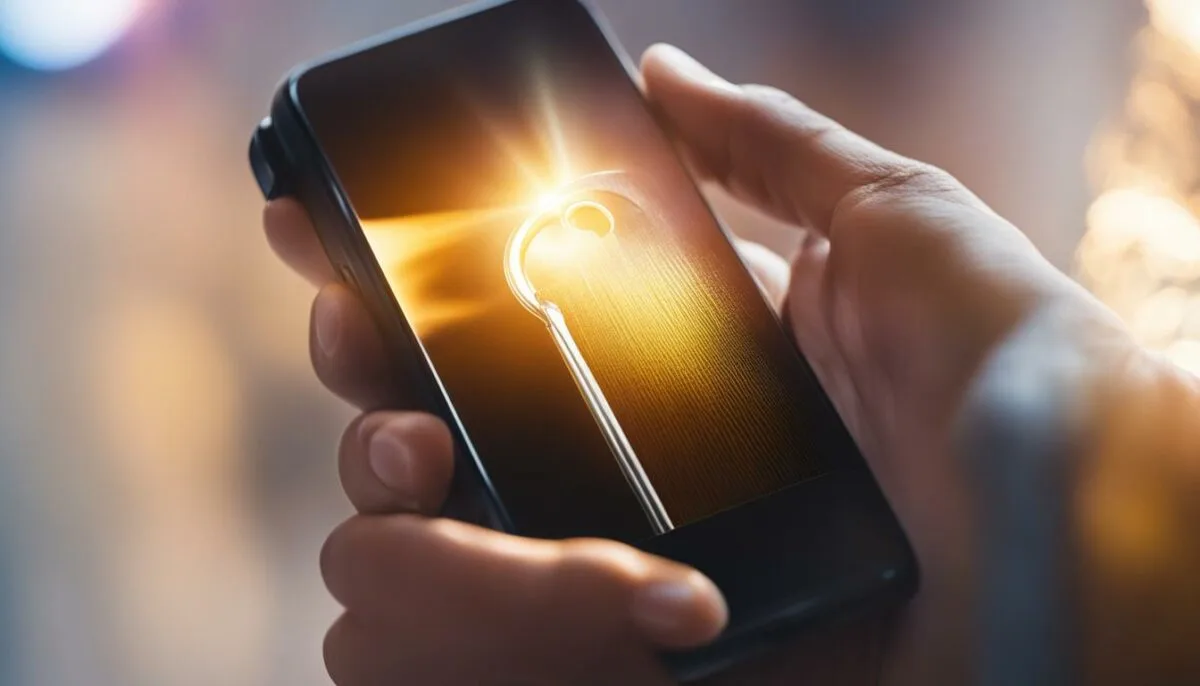Have you ever experienced the frustration of trying to switch carriers or use a local SIM card while traveling, only to find that your smartphone is restricted? SIM restrictions can limit the functionality of your device and prevent you from taking advantage of different mobile networks.
That’s where the concept of unlocked devices comes in. When a smartphone is “unlocked,” it means that there is no network lock on the device, allowing it to be used with any carrier and any SIM card. But what does no SIM restrictions mean? Let’s delve deeper into this topic and discover the benefits of owning an unlocked smartphone.
Key Takeaways:
- Unlocked devices have no network lock, allowing them to be used with any carrier and any SIM card.
- No SIM restrictions mean the ability to switch carriers, use local SIM cards while traveling, and take advantage of different mobile networks.
- Having an unlocked smartphone provides more freedom and flexibility to the user.
- However, there may be challenges and limitations associated with unlocking a smartphone, such as certain carrier restrictions or incompatible SIM cards.
- Unlocking a smartphone may also impact the device warranty, so it’s important to consider the potential risks and considerations.
Understanding SIM Restrictions

Before we dive into the benefits of having an unlocked smartphone, let’s first define SIM restrictions and their impact on your device’s functionality.
SIM restrictions are limitations imposed by your carrier that dictate which SIM cards can be used with your device. This means that if your smartphone is locked to a particular carrier, you may not be able to switch to a different carrier or use local SIM cards while traveling.
SIM cards, on the other hand, are small removable chips that allow your smartphone to communicate with your carrier’s mobile network. They store information such as your phone number, contacts, and text messages. SIM cards also come in different sizes and types, with some carriers imposing restrictions on which types of SIM cards can be used with their network.
Carrier Restrictions
Carriers may impose SIM restrictions for various reasons, such as protecting their network from potential fraud or ensuring that customers fulfill their contractual obligations. These restrictions can also be region-specific, meaning that a phone locked to one carrier in one country may not work with a SIM card from a different carrier in another country.
In summary, SIM restrictions can limit your ability to switch carriers or use local SIM cards while traveling. These restrictions are imposed by carriers to protect their network and customer contracts and can be region-specific.
“It’s important to note that unlocking a smartphone and removing SIM restrictions may void its warranty and could potentially cause technical issues.”
Unlocked Devices and Freedom

If you’re tired of being tied down to a single mobile network, consider investing in an unlocked smartphone. Unlike network-locked devices, unlocked smartphones have no network lock and can be used with various GSM and CDMA carriers.
When you have an unlocked device, you’re free to switch carriers at any time without purchasing a new phone. You can also take advantage of local carrier deals while traveling abroad, saving you money on roaming fees. You’ll never have to worry about carrier restrictions or sim card compatibility again.
“Unlocked smartphones provide freedom and flexibility to users, giving them the power to choose their carrier and their plan without limitations.”
Unlocked devices are becoming increasingly popular as more people seek greater flexibility and control over their mobile plans. Whether you’re looking to save money or simply want the freedom to choose your carrier, an unlocked smartphone is the way to go.
Benefits of No SIM Restrictions

Having an unlocked smartphone and no SIM restrictions brings a host of benefits to users. One of the most significant advantages is the ability to switch carriers as required. Users are not bound to a specific carrier and can move between different carriers depending on their needs and budget. This freedom allows users to choose the best plan for their budget and enjoy better service coverage.
Another benefit of having no SIM restrictions is the ability to use local SIM cards while traveling. This is particularly beneficial for frequent travelers who can avoid expensive roaming charges by purchasing a local SIM card in the country they are visiting. With an unlocked device, users can easily swap out their SIM card with a local one, enabling them to use their phone without interruption or exorbitant fees.
Without SIM restrictions, users can also take advantage of different mobile networks. Depending on the user’s location, some carriers may offer better coverage or faster internet speeds than others. With an unlocked device, users can switch to different carriers and explore different mobile networks, ultimately finding the best fit for their needs.
Sim Card Compatibility
It is important to note that while unlocked devices offer great flexibility, sim card compatibility could still pose a limitation. Generally, unlocked devices are compatible with both GSM and CDMA carriers, but it is always best to verify compatibility with the desired carrier before purchasing a device. This can usually be done by checking the carrier’s website or calling customer service directly.
“The freedom that an unlocked device provides users with makes it a worthwhile investment, as it opens up a world of possibilities and customized choices.”
How to Check for SIM Restrictions

Before unlocking your smartphone, it’s important to determine if it has SIM restrictions imposed by the carrier. These restrictions can limit the functionality of your device and prevent you from switching carriers or using local SIM cards while traveling.
To check for SIM restrictions, follow these steps:
- Go to your phone’s “Settings” menu.
- Select “Mobile Network” or “Cellular Network.”
- Look for an option to add a new APN (Access Point Name).
- If you see this option, your device may have SIM restrictions. Contact your carrier to confirm.
- If you do not see this option, your device may be unlocked or have no SIM restrictions.
If you’re still unsure, you can also contact your carrier to inquire about any SIM restrictions on your device. Keep in mind that carrier restrictions may vary based on location and service provider.
Knowing whether your smartphone has SIM restrictions is crucial when deciding whether to unlock your device. By unlocking your smartphone, you can gain the freedom to use any compatible SIM card and take advantage of different mobile networks.
“Before unlocking your smartphone, it’s important to determine if it has SIM restrictions imposed by the carrier.”
Unlocking Your Smartphone

Unlocking your smartphone can be a relatively simple process, but it’s important to understand the differences between software and hardware unlocking methods. Software unlocking involves downloading a third-party program to unlock your device, while hardware unlocking involves physically altering the phone’s hardware.
Before attempting either method, it’s crucial to ensure that your smartphone is compatible with the carrier you want to switch to. GSM carriers such as T-Mobile and AT&T use SIM cards, which can be easily swapped out on an unlocked device. CDMA carriers like Sprint and Verizon, on the other hand, do not use SIM cards, and unlocking can be more challenging.
Unlocking for GSM Carriers
For GSM carriers, unlocking is typically a straightforward process. Many carriers will provide you with an unlock code upon request, while others may require you to meet certain eligibility criteria, such as having an account in good standing or completing a certain amount of service time.
Once you have the unlock code, inserting a SIM card from a different carrier will prompt you to enter the code. After entering the code, your device will be unlocked and ready to use with the new carrier.
| Pros | Cons |
|---|---|
| Can switch carriers easily | May require meeting eligibility criteria |
| Can use local SIM cards while traveling | May void device warranty |
| Can take advantage of different mobile networks | May not work with CDMA carriers |
Unlocking for CDMA Carriers
Unlocking for CDMA carriers is typically a more challenging process due to the lack of SIM cards. However, it is still possible to unlock your device and use it with a different carrier.
One method is to use a software unlocking program that can reprogram your device to work with a different CDMA carrier. Another option is to purchase a device that is already unlocked for your desired carrier.
It’s important to note that unlocking a CDMA device can have limitations. Some features may not work properly, and it may not be compatible with all CDMA carriers.
Overall, unlocking your smartphone can provide you with the freedom to use your device with different carriers and take advantage of different mobile networks. However, it’s important to weigh the potential challenges and warranty implications before making the decision to unlock your device.
Challenges of Unlocking

While unlocking a smartphone can bring about several benefits, like using different carriers and local SIM cards, it can also pose some challenges, especially when dealing with carrier restrictions and sim card compatibility issues.
One of the most significant challenges when unlocking a smartphone is that some carriers may not allow it. For instance, some carriers impose specific restrictions that prevent users from switching to another carrier. Additionally, unlocking a smartphone may also affect the carrier’s ability to provide software updates, as unlocking overrides some security protocols that ensure smooth software updates.
Another challenge to unlocking a smartphone is sim card compatibility. Some smartphones may not work with specific sim card types, especially those from carriers that use incompatible frequencies. Users may also experience problems with the phone’s network settings, which may not be compatible with the new carrier’s network.
However, these challenges are not always insurmountable. In many cases, users can still unlock their smartphones by finding alternative ways around carrier restrictions and sim card compatibility issues. For instance, users may choose to use third-party unlock codes or tools to bypass carrier restrictions. Additionally, users can also switch to carriers that use compatible frequencies, especially if they plan to use international SIM cards.
“Unlocking a smartphone can be a useful and cost-effective way to maximize the device’s functionality, but it is essential to consider the potential challenges and limitations that may arise.”
Unlocking and Warranty Considerations
Before deciding to unlock your device, it’s important to consider the potential impact on your warranty. In most cases, unlocking a device will void the warranty provided by the manufacturer or carrier. This means that if something goes wrong with your device after unlocking it, you may not be eligible for repairs or a replacement.
It’s important to note that unlocking your device is not illegal, but it may still be considered a breach of contract with your carrier. This means that they could potentially take action against you if they discover that you have unlocked your device.
If you do decide to proceed with unlocking your device, it’s essential to understand the risks involved. For example, some unlocking methods can damage your device or cause it to malfunction. Additionally, some unlocked devices may not be compatible with certain carriers or mobile networks.
Ultimately, the decision to unlock your device is a personal one that should be made after careful consideration of the potential risks and benefits. It’s important to do your research and fully understand the implications of unlocking your device before proceeding.
That being said, if you are confident in your decision to unlock your device, there are several methods available to do so. These can include software-based unlocking methods, which are often less risky but may not work for all devices or carriers, or hardware-based unlocking methods, which can be more complex and require specialized tools or expertise.
Ultimately, the decision to unlock your device comes down to your individual needs and priorities. If you value the freedom and flexibility that an unlocked device provides, the potential risks and challenges may be worth it for you. However, if you prioritize your device’s warranty or are concerned about the potential risks, it may be best to stick with a carrier-locked device.
Conclusion
In conclusion, owning an unlocked smartphone with no SIM restrictions can provide numerous benefits and greater freedom. Such devices are compatible with both GSM and CDMA networks and allow users to switch carriers and use local SIM cards while traveling.
However, it is important to note that unlocking a smartphone may come with potential challenges such as carrier restrictions and SIM card compatibility issues. Additionally, unlocking may void device warranties, which should be taken into consideration.
Overall, the advantages of owning an unlocked device with no SIM restrictions make it a worthwhile investment for those seeking greater flexibility and control over their mobile network usage.
Takeaway
If you are considering purchasing an unlocked smartphone, make sure to check for carrier restrictions and consider the potential challenges and warranty implications before making a decision.
By understanding the meaning of no SIM restrictions and the benefits of unlocked devices, you can make an informed decision that best suits your mobile network needs.
FAQ
What does “no SIM restrictions” mean?
“No SIM restrictions” refers to the ability of a smartphone to be used with any SIM card from any carrier. It means that the device is not locked to a specific network and can be freely used with different carriers.
What are SIM restrictions?
SIM restrictions are limitations imposed by carriers on the usage of a smartphone. These restrictions can prevent the device from being used with SIM cards from other carriers or restrict certain functionalities of the device.
What is the difference between locked and unlocked devices?
A locked device is tied to a specific carrier and can only be used with SIM cards from that carrier. An unlocked device, on the other hand, is not tied to any specific carrier and can be used with SIM cards from different carriers.
Can unlocked devices work with both GSM and CDMA carriers?
Yes, unlocked devices are compatible with both GSM and CDMA carriers. They offer the flexibility to use the device with a variety of carriers, regardless of the network technology they employ.
What are the benefits of having no SIM restrictions?
Having no SIM restrictions allows you to switch carriers easily, use local SIM cards while traveling to avoid high roaming charges, and take advantage of different mobile networks for better coverage and service options.
How can I check if my smartphone has SIM restrictions?
To check for SIM restrictions, you can contact your current carrier and inquire about any limitations on using the device with other carriers’ SIM cards. Additionally, you can try inserting a SIM card from another carrier and see if it is recognized and works properly.
How can I unlock my smartphone?
There are two main methods to unlock a smartphone: software unlocking and hardware unlocking. Software unlocking involves using codes or software tools to unlock the device, while hardware unlocking requires physically modifying the device. The method you choose depends on the specific device and carrier restrictions.
Are there any challenges in unlocking a smartphone?
Yes, some challenges may arise when unlocking a smartphone. Certain carrier restrictions or incompatible SIM cards may still pose difficulties and limit the effectiveness of the unlocking process. It is important to research and understand the specific requirements and limitations of your device and carrier.
Does unlocking a smartphone void the warranty?
Unlocking a smartphone can potentially void the warranty, as it involves making modifications to the device. It is essential to review the terms and conditions of your warranty and consult with the manufacturer or carrier before proceeding with any unlocking methods.